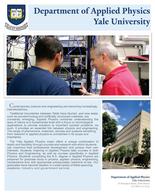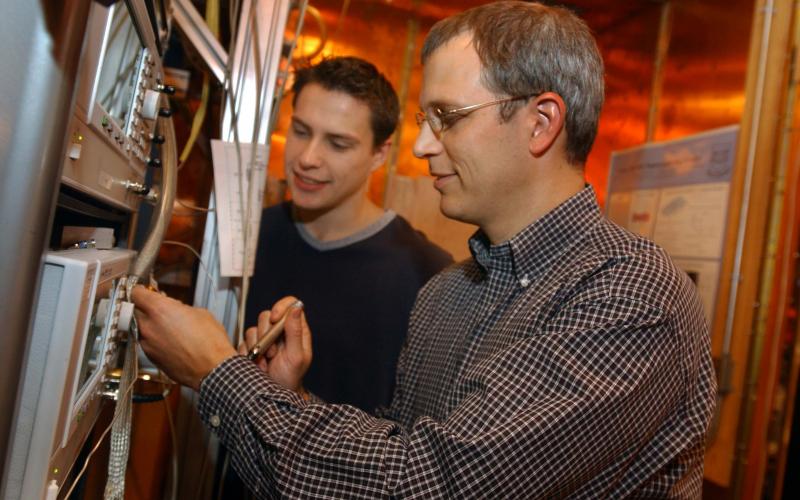Links:
Contemporary science and engineering are becoming increasingly interdisciplinary. Traditional boundaries between fields have blurred, and new areas, such as nanotechnology and artificially structured materials, are constantly emerging. Applied Physics combines understanding the laws of nature at a fundamental level with a focus on technological applications to provide solutions to important societal problems. As such, it provides an essential link between physics and engineering. The range of phenomena, materials, devices and systems benefiting from research in applied physics is unmatched in its scope and importance.
The Yale Applied Physics major offers a unique combination of depth and flexibility through courses and research with which students can maximize their professional development and pursue their own interests. Students majoring in Applied Physics take courses in both physics and engineering, as well as courses specifically in applied physics. Students completing the B.S. degree in Applied Physics are prepared for graduate study in physics, applied physics, engineering, nanoscience and, with appropriate prerequisites, medicine or law. Our graduates have become leaders in a wide variety of fields spanning academia, industry and government service.
The Applied Physics faculty are engaged in a broad range of research programs, including quantum computing, superconducting devices, complex materials and new devices based on them, nano- and micro-optical devices, as well as theoretical studies of novel materials, phenomena and optical microsystems. They collaborate with faculty in all of Yale’s Engineering departments, as well as those in Physics, Chemistry, Biology, and the Yale School of Medicine. Several Applied Physics faculty are members of the Center for Research on Interface Structures and Phenomena (CRISP), an interdisciplinary materials research center funded by the National Science Foundation. Applied Physics faculty also play a central role in the Yale Institute for Nanoscience and Quantum Engineering (YINQE). A key thrust of YINQE is to bring together researchers in the physical sciences and engineering with those in the medical and biological research communities through nanoscale research and applications. The resources of these centers, and several others at Yale, are available for use by students in their research projects. Undergraduate research is strongly encouraged in the department, and our faculty are enthusiastic about working with undergraduate students.
In addition to the prerequisite courses in math and science, Applied Physics majors take three upper level core courses that are the foundation of much of modern science and engineering: Electromagnetic Waves and Devices (APHY 322), Statistical Thermodynamics (APHYS 420) and Quantum Mechanics (APHY 439). Because computers are so fundamental to the practical applications of physics, students are strongly encouraged to take a course in the use of computers early in their career. In consultation with the DUS, they choose an area of concentration and a course sequence that interests them and develop it in detail. Students are expected to do two terms of independent research (Special Projects, APHY 471a and 472b); they may start working on their independent research project in their junior year. They may choose their research faculty advisors not only from among Applied Physics faculty, but also from the faculty in Physics, Computer Science, the Engineering departments, the Medical School, and related departments. Students should discuss their options with the DUS.
Students who are interested in the Applied Physics major should contact the DUS as early as possible, but certainly before the end of the Sophomore year.

